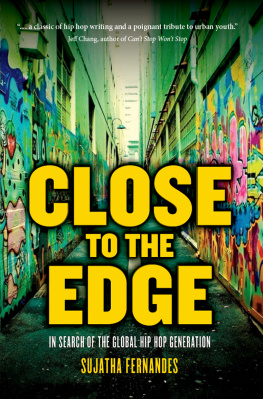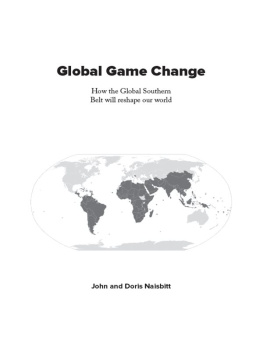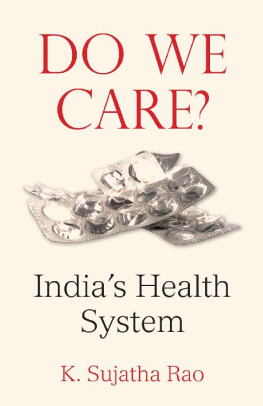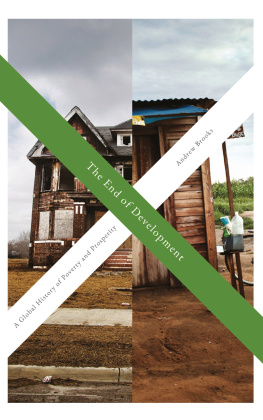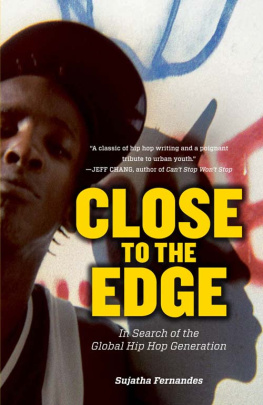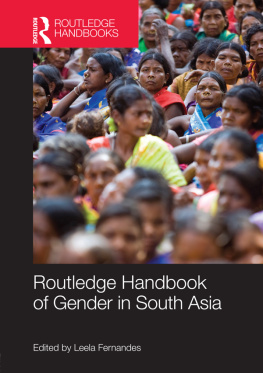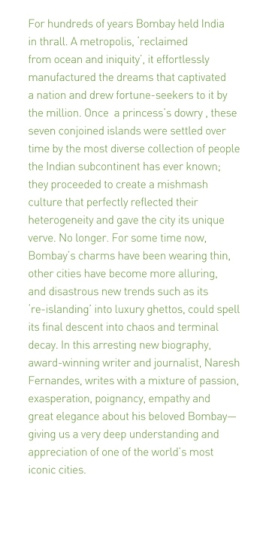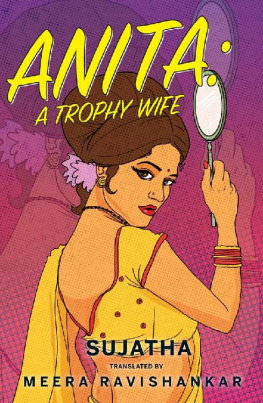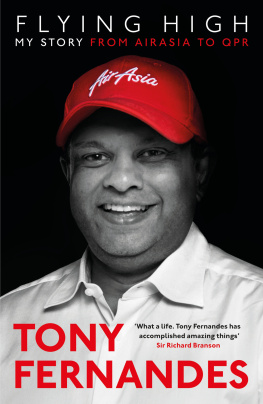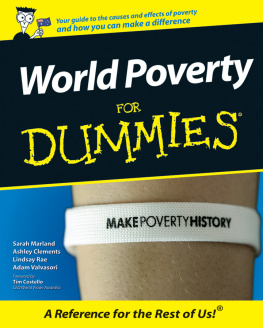Acknowledgments
I owe a big thank you to all of the hip hoppers in four cities who are the life and soul of this book. I'm glad that they trusted me that this would eventually become a book. Special thanks to Magia Lopez, Alexey Rodriguez Mola, Pablo Herrera, Ariel Fernandez, Randy Acosta, Julio Cardenas, Mike Treese, Jesse De La Pena, Waiata Telfer, Khaled Sabsabi, Munkimuk, Ebony Williams, and Jose Roberto Duque, among the many more who are mentioned in this book. I have tremendous respect and admiration for their work, and they contributed of themselves and their time to this project in ways for which I am incredibly grateful. I always envisioned this book as a coproduction, as explicitly collaborative as hip hop production and performance itself. In many respects these artists are also coauthors of this text.
There are several friends who helped facilitate my entry into these hip hop worlds and supported my visits around the globe. Lilia Cruz Marin and Norma Guillard Limonta were my companions and collaborators in Havana. Yajaira Hernandez and Johnny Moreno provided a place to stay and delicious arepas in Caracas. Anurima Bhargava introduced me to her hip hop people in Chicago. Antoinette Abboud and Maya Jupiter facili-tated contacts and helped me reconnect with folks in Sydney. Bibi Serafim at Urban Theatre Projects in Sydney provided me with documents and information. Vanessa Daz generously shared her materials from Cuba.
I am grateful for the insights of friends and colleagues who read drafts of the chapters and gave invaluable feedback. The idea originated with Miriam Angress, and even though it became something quite different from how it started out, I am indebted to her for the suggestion that I write the book. Jason Stanyek read several chapters at an early stage and gave me detailed feedback as to how I could turn it into the book that I wanted to write. Aoibheann Sweeney and the folks in the Mellon Humanities Seminar at the Center for the Humanities at the City University of New York Graduate Center gave me very useful feedback on my writing. Colin Robinson helped me make the transition from an academic to a nonfiction writer, and I am immensely grateful for all his advice over numerous lunches. Greg Ruggiero and Stephanie Griest gave me insights and suggestions about the trade publishing world. The project evolved significantly during my summer 2008 writing group with Joe Schloss, Lara Pellegrinelli, Kyra Gaunt, and Garnette Cadogan. I especially appreciate Joe's continuing feedback on the project after our writing group finished and Garnette's close reading and edits of my work. Kwame Harrison also read some chapters and offered very helpful comments.
I would like to acknowledge the indispensable work of my research assistant, Will Johnson. I am proud to use the photos of some terrific photographersOriana Eliabe, Jason Florio, Sara Maneiro, Javier Machado, Sam Lazzaro, and Yoel Diaz Vazquez. I am grateful for a one-year Mellon fellowship provided by the Center for the Humanities at the CUNY Graduate Center to write the book. I also received funding from the Professional Staff Congress-City University of New York Research Foundation to support my writing. Thank you to the team at Verso for making the book happen, especially Sebastian Budgen.
My parents, Joe and Sylvie, as always deserve crucial thanks for all their help and support over the eleven years that I traveled and lived in cities across the globe. My sister, Deepa, and her partner, Matt Rogers, bore with me as I struggled with my writing, sharing their own insights and experiences of nonfiction writing. Thanks to my husband Mike Walsh and our children Aisha and Shaad for their loving support and even their inter-ruptions, which gave me an excuse to play rather than work. This book is dedicated to Mike. Our animated discussions about hip hop over the many years of our companionship are reflected on every page of this book. He read several drafts and gave me his honest and unfiltered opinions. Without his challenging me to think and question myself, and helping me come to terms with my own relationship to hip hop, I would not have had the courage to publish this book.
All translations of Spanish lyrics are the author's. When lyrics have been used, the publisher and author have been careful to observe the rules of fair use. In any instance where the lyrics quoted exceed more than a few words, every attempt has been made to contact the copyright holder and obtain permission. The publisher apologizes for any oversight and will emend all future additions accordingly on being informed of the mistake. The author and Verso would like to express their gratitude to the following artists and publishers:
Untitled, by Ang 13, from the album Ang 13. Ang 13, 1999.
Underground and Independent, by Capital D of All Natural, from the album No Additives, No Preservatives. All Natural, 1999.
Boca de Lobo [Mouth of the Wolf], by DJ Trece and El Nigga, from the album Boca de Lobo. Subterraneo Records.
Untitled, by Explosin Suprema. Unpublished.
Black Malandreo, by Guerilla Seca, from the album La Realidad Mas Real. Subterraneo Records.
Lleg el hampa, by Guerrilla Seca, from the album La Realidad Mas Real. Subterrneo Records.
Tengo [I Have], by Hermanos de Causa, from the album Cuban Hip Hop All Stars, Vol. 1. Papaya Records, 2001.
Lgrimas Negras [Black Tears], by Hermanos de Causa. Unpublished.
Squash All Beef by KRS-ONE, from the album KRS-One. Jive Records (Zomba Label Group), 1995.
La llaman puta [They Call Her Whore], by Magia Lopez, from the album La fabriK: Obesin Doble Filo. Self-published.
How We Chill Pt. 2, by MC Juice and Rhymefest, from the album Ritual of the Molemen Records, 2007.
Untitled, by Notorious Sistaz and Dr. Nogood. Unpublished.
Run for the City, by Obesin. Unpublished.
Everything That She Asked For, by Orishas, from the album Orishas: a lo cubano. EMI, 2000.
El barco, Los Paisanos. Unpublished.
Igual que tu [The Same as You], from the album Primera base: igual que tu, by Primera Base. Caribe Production INC, 1996.
Que Sera [What Will Be], by Randy and El Huevo. Unpub-lished.
Fuck the Brady Bunch, by Sujatha Fernandes and Waiata. Unpublished.
Untitled, by SWS (Munkimuk, Brothablack). Unpublished.
Untitled, by Treese of Mass Hysteria. Unpublished.
Untitled, by Two Indij. Unpublished.
Historia nuestra, by Vagos y Maleantos, from the album Papidandeando. Subterrneo Records.
Open Up Your Mind, by Ebony Williams. Unpublished.
CHAPTER ONE
Made in Havana City
A re you Latina? Clad in a khaki green safari suit, the immigration official at Jos Marti International Airport in Havana peered at me over the top of thick rimmed glasses as he examined my passport.
No. It seemed best to keep things brief.
So why does it say here that your name is Fernandes?
I trotted out the usual response. Because my parents are from the part of India in the South that was colonized by the Portuguese. So much for brevity.
His brow wrinkled. But this is an Australian passport.
Yes, my parents migrated from India to Australia thirty years ago, and I was born there. I'm an Australian citizen.
So why are you coming to Cuba?
Why was an Australian-born, Indian-descended, Portuguese-surnamed gringa like me coming to Cuba? Would you believe, to deliver pickles? On my mother's orders I was bringing home-made dried shrimp pickle for my sister Deepa. Deepa, who had lived in the Ecuadorian forests with shamans and hitch-hiked down the Amazon with another adventurous soul, was now a features producer at Radio Habana, and our mother's main concern was, Is she eating properly? I had successfully smuggled the jar of pickle through Tokyo and Montreal in my circuitous route to Havana, and it was only in Mexico City that a scrutinizing customs official asked me to open it. The thought of disrobing the bulky jarswaddled by my mum in layers of plastic and tapewas so ludicrous that I burst into hysterical laughter. The Mexican official, taken aback at first, joined me in laughing and sent me on my way with the jar untouched.
Next page
